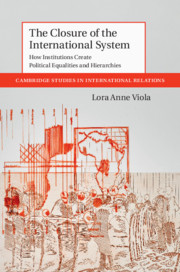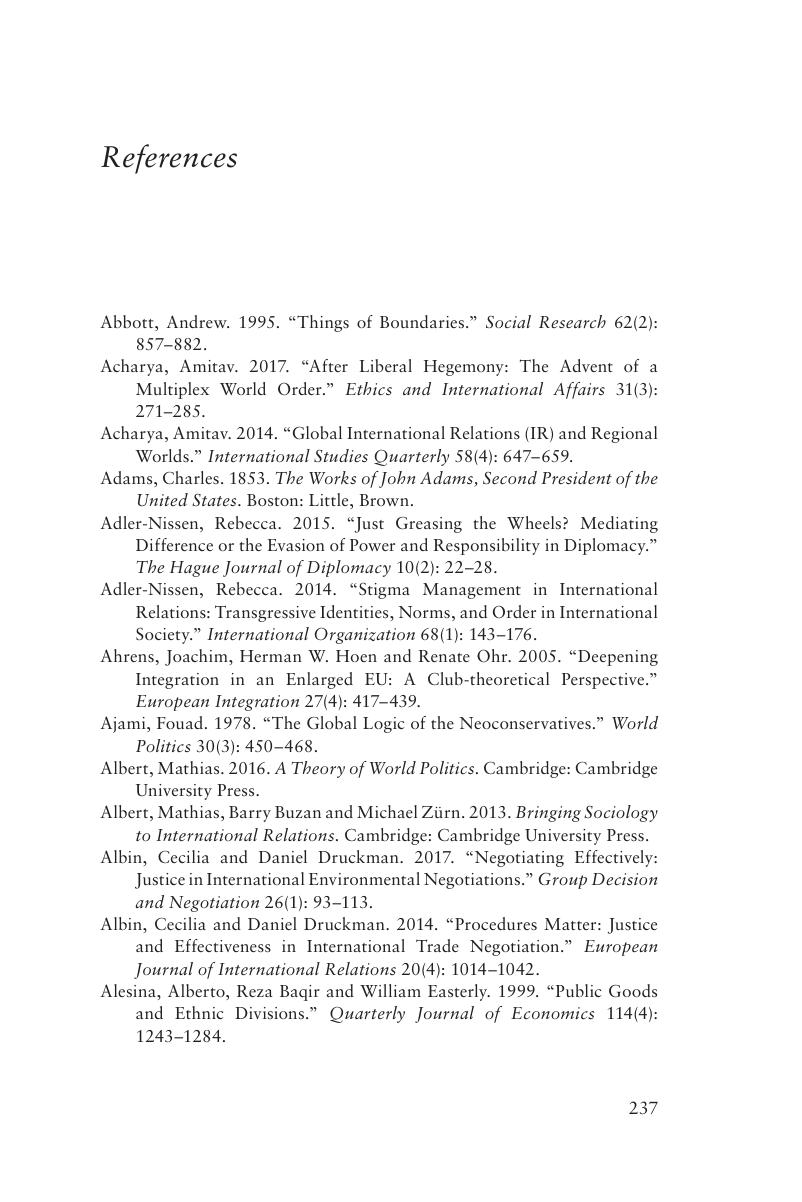 The Closure of the International System
The Closure of the International System Book contents
- The Closure of the International System
- Cambridge Studies in International Relations: 153
- The Closure of the International System
- Copyright page
- Dedication
- Contents
- Acknowledgments
- 1 False Promises of Universalism
- 2 The Closure Thesis
- 3 “The Master Institution”
- 4 “Dwarves and Giants”
- 5 “In Larger Freedom”
- 6 What Remains of the Promise of Equality?
- References
- Index
- Cambridge Studies in International Relations
- References
References
Published online by Cambridge University Press: 16 June 2020
- The Closure of the International System
- Cambridge Studies in International Relations: 153
- The Closure of the International System
- Copyright page
- Dedication
- Contents
- Acknowledgments
- 1 False Promises of Universalism
- 2 The Closure Thesis
- 3 “The Master Institution”
- 4 “Dwarves and Giants”
- 5 “In Larger Freedom”
- 6 What Remains of the Promise of Equality?
- References
- Index
- Cambridge Studies in International Relations
- References
Summary

- Type
- Chapter
- Information
- The Closure of the International SystemHow Institutions Create Political Equalities and Hierarchies, pp. 237 - 268Publisher: Cambridge University PressPrint publication year: 2020


